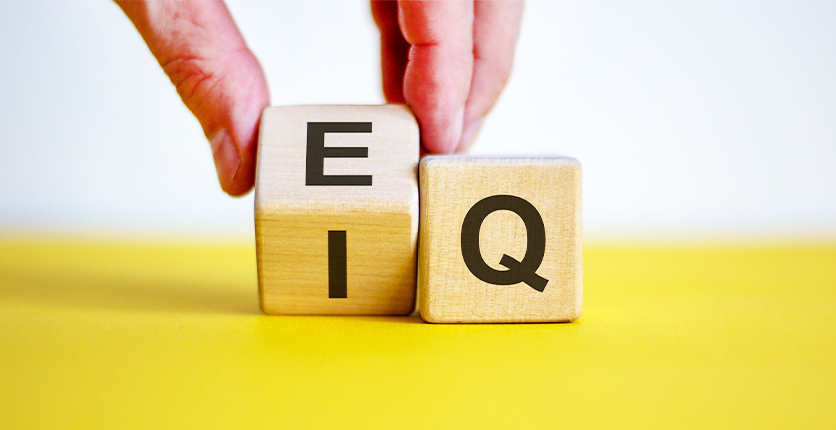To get ahead in our career, we’re often told that the more qualified and experienced we are and the wider our professional network, the better off we’ll be. But qualifications, experience and connections alone aren’t enough for career success. If we really want to make an impact – as a colleague or a boss – and be happy in our job, emotional intelligence, or EI, is crucial. EI helps us enjoy better work relationships and also be better communicators, managers and problem solvers in the workplace.
Dr Shawn Ee, a clinical psychologist at The Psychology Practice, explains how to recognise and develop this valuable skill.

Q: What is emotional intelligence, or EI?
Shawn: EI is our capacity to be aware of, regulate and express our emotions. It developed from early interactions with our caregivers and the way we were socialised with others. Over time, these experiences helped us see things through other people’s eyes and taught us about interpersonal relationships. Simply put, EI refers to our ability to put ourselves in others’ shoes.
Q: Is there a difference between EI and EQ?
Shawn: They are the same and can be used interchangeably. EQ is emotional quotient, which is the measurement of emotional intelligence someone has. So, someone who’s highly emotionally intelligent would have a high EQ.
Q: How does EI come in handy when dealing with colleagues?
Shawn: In the workplace, you see a lot of interpersonal dynamics at play. Being emotionally intelligent is useful in such an environment because it makes it easier for you to deal with the people you come across and handle any problems that may crop up. You’re better able to work with colleagues and bosses who have different agendas, goals and personalities.

Q: How can EI help you advance in your career?
Shawn: People with a “higher” capacity for EI are more aware of their feelings when relating to others in a given situation. They’re better equipped to contain those feelings if necessary, or express them in a useful way, as well as recognise and respond emphatically to their colleagues when needed. When you know how to modulate your responses more effectively, you tend to be more sensitive to the obvious and less obvious social undertones when you’re in a larger group of people.
This all means that you’ll find it easier to collaborate with the people you work with, solve problems, get things done the way you want, put your views and ideas across, cope with stress, and manage change. You will also feel happier in your job and be well liked. When all these elements are present, you’re more likely to succeed in your role and receive more or better opportunities.

Q: And how can it make you a better leader or role model?
Shawn: People who are emotionally intelligent make better leaders because they are aware of the issues that come with making certain decisions and understand the impact of various interpersonal relationships in the workplace. If there are sensitive matters that need to be addressed, they can be trusted to address them. Plus, they have a knack for making tough decisions while being able to exercise kindness and thoughtfulness at the same time.
A leader with EI is someone who can speak the language of his management and subordinates but also comes across as personable. Apart from being more accessible to others, he might appear to be competent and trustworthy – two qualities that garner respect and make someone the type of boss that people want to work for.

Q: Is EI something we are born with or something we develop?
Shawn: I believe it’s something we develop and the process begins very early on in life. That process never really ends because it continues to play out in all our relationships. Over time, we learn how to respond appropriately to social situations and this reinforces our understanding of how to be sensitive to others’ needs, for example. We learn that when we’re sensitive to people, we’re better able to connect with them and a mutual trust is established. The more we interact with others, the more opportunities we have to look at ourselves and observe how we respond in certain situations, as well as identify where we need to improve so that we interact better with people in the future.

Q: How can we learn how to be more emotionally intelligent if we don’t feel that we have this quality?
Shawn: According to American psychologist Daniel Goleman, who popularised EI, there are five areas that we can target to increase our capacity to interact with others. These are self-awareness, self-regulation, motivation, empathy and social skills.
If you focus on developing these aspects and practise them with people you feel safe and comfortable with, you’ll be on your way towards interpersonal competence.
Do you have any tips on how to improve EI? Share them with us at magnsman@sph.com.sg!










